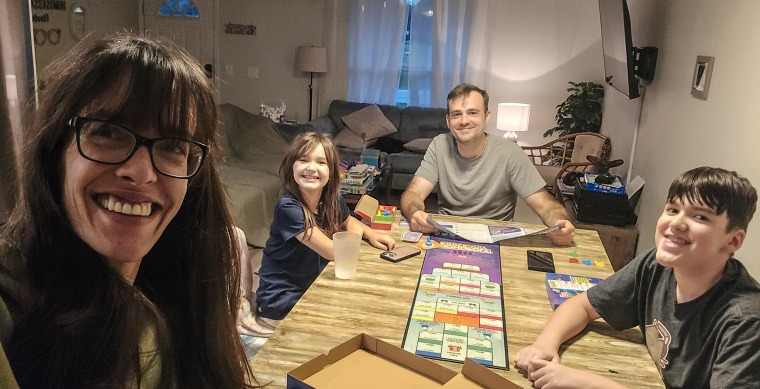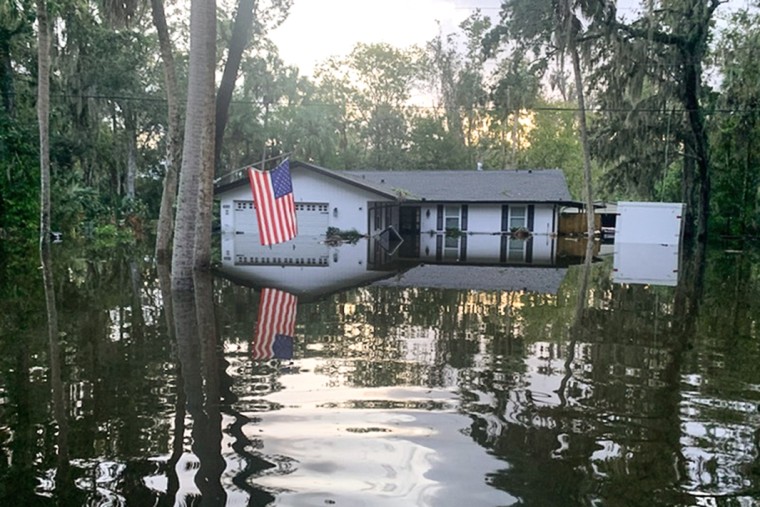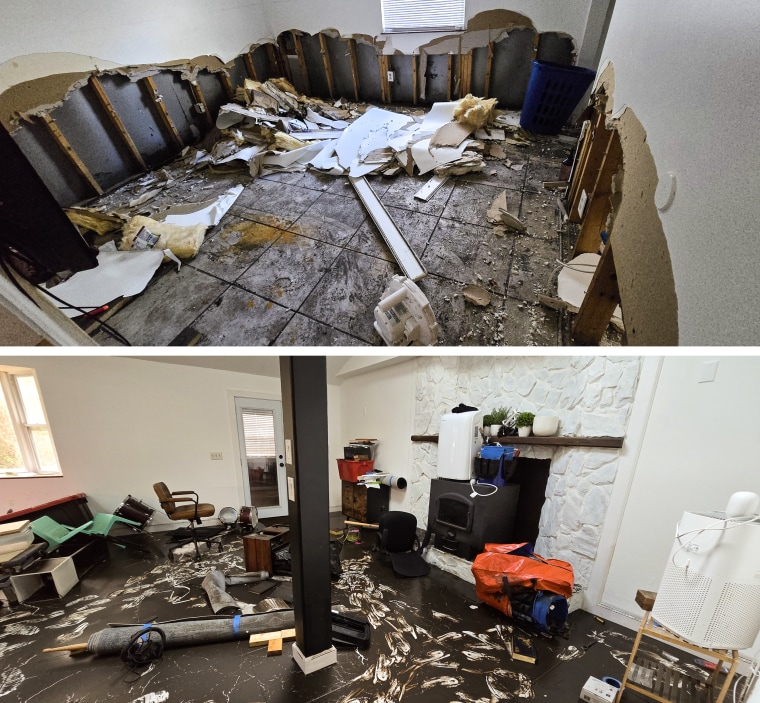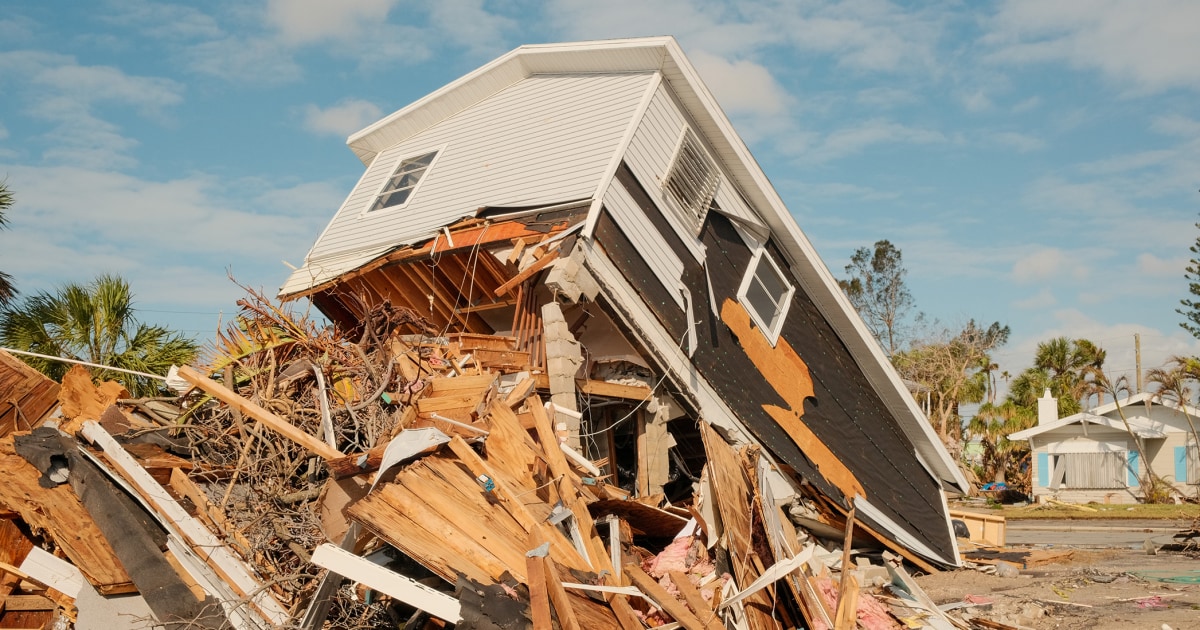In the days and weeks after hurricanes Helene and Milton slammed the Southeast, communities are looking to crowdfund for repairs as conspiracy theories dog efforts to rebuild.
Since the storms hit, the Biden administration has sought to counter false accusations that it is diverting federal relief funds to immigrants, a claim advanced by some Republican politicians, including former President Donald Trump.
A flurry of dubious pleas for crowdfunding — including a viral TikTok video by a man accusing the Federal Emergency Management Agency of evicting him from his Asheville, North Carolina, business — have added to the swirl of false claims, threatening to sap public focus from those who actually need help.
Ashley Aldous Pangborn, 35, said she was glad friends persuaded her to set up a GoFundMe campaign after Helene filled her family’s Homosassa, Florida, home with 28 inches of water. She and her husband had just finished renovations, almost exactly one year since Hurricane Idalia caused nearly $130,000 in property damage.

In the last few weeks, the couple and their two kids have been hopping among a series of rentals they booked on Vrbo, and the nearly $12,000 Pangborn has raised through her $20,000-target campaign has helped cover those costs.
Any misinformation muddies waters. Fake stories detract from real ones.
Ashley Aldous Pangborn, Homosassa, Fla.
The money has been a crucial lifeline as the family waits for more government aid to come through. “It kind of gives us that security that we can make it through to the next month before we really know what happens to us,” Pangborn said.
Still, she worries that the falsehoods could hamper what’s expected to be a long recovery process — for her family and government responders alike.
“Any misinformation muddies waters. Fake stories detract from real ones,” Pangborn said. The conspiracy theories surrounding FEMA in particular “will limit the people they will be able to help,” she added. “I fear that things like this will continue to fan the flames of distrust and put FEMA workers in danger.”

A GoFundMe spokesperson said the popular crowdfunding platform’s trust and safety team has been working “around the clock” to scrutinize appeals for Helene- and Milton-related aid. The company has also set up its own relief fund and is assuring users that its verification process is sound.
GoFundMe’s Hurricane Helene Relief Hub features thousands of fundraisers that it says it has determined are authentic. They cover a variety of emergency relief, “including for temporary shelter, essentials like food and diapers, and long-term rebuilding,” the spokesperson said. About 500,000 donors have raised over $65 million on the platform since Helene made landfall.
But as more time passes, communities still grappling with severe storm damage increasingly worry they’ll be overlooked.
In recent weeks, conspiracy theories have been drawing some of the biggest post-hurricane headlines — from allegations of threats of violence against FEMA workers to fantastical assertions that the Biden administration is controlling the weather — as public attention on ground-level rebuilding efforts drifts.
Small businesses in North Carolina’s Great Smoky Mountains have been pushing to let visitors know they’re open for business, and artists and musicians in the creative hub of Asheville are bracing for a lengthy recovery that many expect they’ll have to undertake largely on their own.

Pangborn said she received the initial $750 relief payment FEMA provides to disaster survivors. But she’s in a holding pattern for further rebuilding aid, as the agency requires proof of insurance claim denial — which she has yet to receive — to disburse more funds. Even after that, Pangborn said, she’ll need to elevate her home by at least several feet to obtain a building permit for construction within the parameters of FEMA’s 50% rule.
As Pangborn works on those next steps, she said, she’s worried about people targeting agency workers who are already “inundated” with requests from residents. Many households, she noted, are dealing with damage from hurricanes — which are growing stronger and larger because of climate change — for the first time.
“I have to believe that everyone is trying their best,” she said, or else “I’m going to lose my faith in humanity, and things are hard enough right now.”
While GoFundMe said it follows a thorough “due diligence” process to vet fundraisers, it also encourages donors to assess campaigns before they give. That includes reviewing fundraiser pages for clear details, contacting organizers with questions and scanning comments and previous donations for any potential red flags. The company added that every donation is fully refundable in case abuse is identified.
Other platforms, such as Indiegogo and the nonprofit-focused Mightycause, have also been hosting appeals for hurricane-related relief. Some of the people who’ve turned to crowdfunding are looking to finance repairs that federal money might not cover in the near term or at all, many households just outside FEMA-designated disaster areas have sustained damage, and the Small Business Administration’s disaster fund for low-interest loans has run out of money, though the agency is encouraging applicants to keep filing.
In the meantime, Pangborn worries about neighbors who might not have the resources or the digital literacy to raise money online.
“I live in an area where there’s a lot of older people. Not everyone knows how to use the computer,” she said. “Your whole life is turned upside-down, and there are expenses that you don’t even know that you’re going to have to pay for.”

Leave a Reply